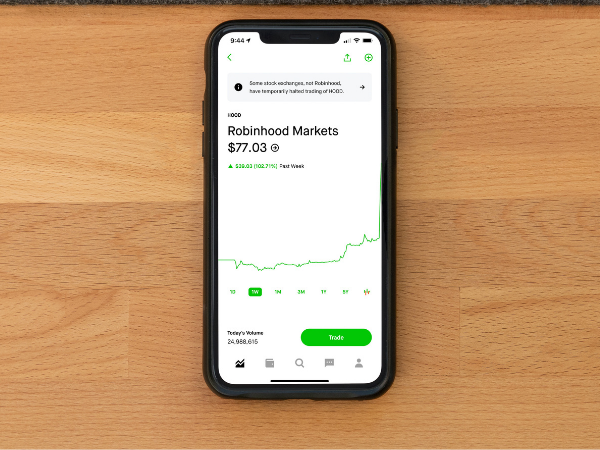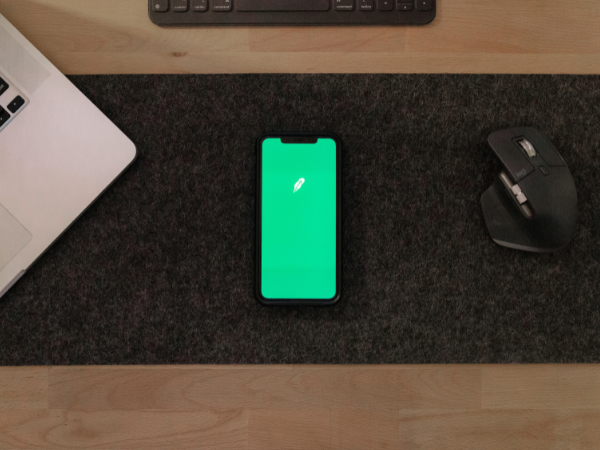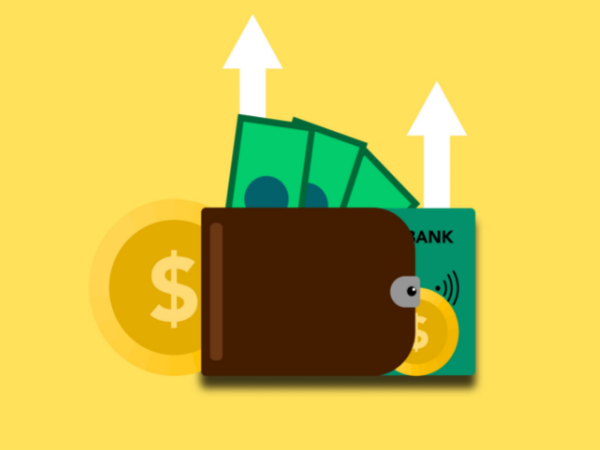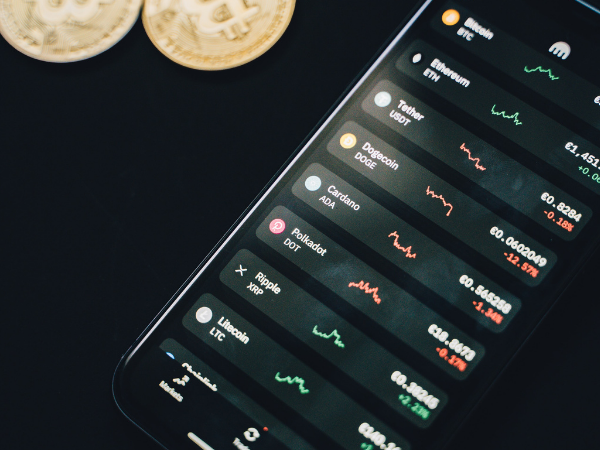How does Robinhood make money?
Nowadays, many people have been asking “How does Robinhood make money?” It’s not surprising because it lets regular folks start investing easily. You don’t have to pay to have an account or pay any apparent fees for each feature. Yet, it has become one of the most well-known investment apps in the world!
After all, it provides a nifty investment tool that fits in your pocket. The Robinhood app lets you pick stocks from major firms, track real-time price movements, and place buy and sell orders. What’s more, you don’t have to pay any fees upfront, or do you? We’ll show you how the online broker’s business model lets it earn a ton of money.
Let’s start by explaining how brokerages earned money back then to show why many people wonder about their cash flow. Afterward, we will explain how Robinhood makes money and see how much it had earned so far. Next, we will show you the upsides and downsides of this investment app, as well as other investment apps.
Why are people asking how Robinhood makes money?

Before Robinhood was a thing, most people couldn’t invest in assets. They didn’t know anything about the markets, and the commission fees were too expensive.
Back then, you had to go to your brokerage firm and plan your investments with an advisor. It would be awkward if you went there without knowing anything about the markets!
Eventually, online brokerages like Charles Schwab had lower fees than these full-service options. Unfortunately, they don’t give investment advice or perform market analysis.
It wasn’t until the 2008 Financial Crisis when we saw the first online brokerages. Five years later, Robinhood made it easier to invest and trade stocks.
If you want to use the app, you will have to apply for an account. This is to comply with the Securities and Exchange Commission’s requirements.
What’s more, you’ll have to link it to your bank account. This is to make sure you can transfer funds between that and your Robinhood brokerage account.
After a few weeks, you may start buying your first stocks. Open the app, and you’ll notice how simple and clean the user interface is. You won’t be greeted with too many metrics!
The app made it easier and simpler to invest in stocks, and users don’t have to pay any fees at all! Is it any wonder why people ask “How does Robinhood make money?”
How Robinhood makes money
Online brokerages usually helped buyers and sellers meet digitally at the NASDAQ Stock Market or other stock exchanges. However, only 53% of buy and sell orders did this.
Wholesalers handle around 38% of these orders instead. They’re otherwise known as market makers, and they’re at the heart of Robinhood’s payments for order flow (PFOF) model.
Market makers like Citadel Securities pay Robinhood so they could execute its customer trades. It starts with their bid price and ask price for each stock.
The former represents the amount the market maker is willing to pay for a stock. Meanwhile, it’s willing to sell the same share for another amount called the ask price.
The difference between the two prices is called the bid-ask spread. The market maker earns this amount each time an investor buys or sells a particular stock.
The spread may seem small since it could be less than a dollar. That is until you consider that it had 22.5 million users during Q2 2021. Imagine how many orders they place every day!
Usually, several market makers compete to give the best price to these brokerages. Others simply pay the broker firm so they get to be the only ones executing orders.
The PFOF model helped Robinhood earn $180 million from trades in 2021’s second quarter. Most of the money came from options trading.
In June, Robinhood had 4.3 million daily average revenue trades, also known as trades that generated fees and commissions. This exceeded what its competitors made in total.
Read More: What Is A Brokerage Account?
Why Robinhood is good
People won’t be asking “How does Robinhood make money?” if it doesn’t have a lot of users. The app added roughly 3 million just last year and included 660,000 funded accounts in 2021!
Here’s what’s so great about Robinhood:
- Low to no costs – As we said, Robinhood allows everyone to start investing because it barely charges any fees.
- User-friendly – It has a UI that is simple to use. Most people may feel overwhelmed by the amount of information that comes from regular investment sites. What’s more, it gives new users one share at random.
- Free crypto trades – If you ever wanted to trade cryptos, this is the app for you. Robinhood is one of the few brokerages with free cryptocurrency trading.
- Debit card – You may also buy products and services with the Robinhood debit card. It requires no opening deposit, and it doesn’t charge fees for overdraft, foreign transactions, or any out-of-network ATM fees.
- Robinhood Gold – Upgrading your customer account provides a bunch of new features. For example, it lets you engage in margin trading. This involves using margin loans to perform high-risk, high-reward trades. Note that you’ll be liable for any risks you get from using these methods.
Why Robinhood is bad
There are a few drawbacks to Robinhood’s simple design. The biggest one is that it doesn’t have that many asset classes available. It also has the following problems:
- Limited asset choices – You can’t invest in bonds, mutual funds, and retirement plans, and you can’t short stocks.
- Lacks research features – The numbers and charts may confuse regular folks, but they’re important for other investors. For example, the bars along the price charts are called candlesticks, and they show you how the price moved within a specific time. You won’t find them in the Robinhood app, though.
- Poor customer service – Robinhood doesn’t have live chat or phone support. This is not good because so many regular folks use it.
- Allows uninformed investors – Anyone can become an investor, but they should learn the ins and outs first. Since Robinhood is easy to use, reckless people may quickly pour all their money into risky trades. Online forums have numerous stories of people going all-in on a stock, only for it to crash along with their money.
- Encourages frequent use – People might be tempted to look at the app way too many times. As a result, people stay up late just to see how their stocks are doing. Some may take things too far by trading too much money just to make something new happen.
Other investment apps
Some people stay away from Robinhood because of these flaws. Fortunately, other investment apps can meet their needs. Here are some apps you may get instead of Robinhood:
- Investr – Have you ever wanted to try investing without spending real money? Investr provides a virtual stock market that’s based on real-world data. It acts as a sort of game where you invest using virtual money. Once you get the hang of it, Investr lets you invest in real stocks, ETFs, and even cryptos!
- Betterment – What if you don’t have time to choose your investments? Betterment will just ask you about your money goals, and it will pick the right mix of stocks and bonds. What’s more, the app will manage your portfolio on your behalf.
- TD Ameritrade – If Robinhood is too simple, this one has the features you need. All the asset classes not in Robinhood are in here. What’s more, it lets you check your portfolio via Apple Watch.
Related Articles
Final thoughts
We’ve answered, “How does Robinhood make money?”. Choose the right assets, and the app can help you earn money too. Yet, you shouldn’t limit yourself to Robinhood or its options.
Other assets can serve as additional revenue streams. For example, bonds pay dividends that could be a source of passive income. You can’t get them from Robinhood though.
Of course, you should study these assets first before getting into them. Fortunately, you may read more Inquirer USA articles to learn more about these options.
If you are interested in content marketing, please email Anthony@Inquirer.net
Sponsored Advertising Content:
Advertorial or Sponsorship User published Content does not represent the views of the Company or any individual associated with the Company, and we do not control this Content. In no event shall you represent or suggest, directly or indirectly, the Company's endorsement of user published Content.
The company does not vouch for the accuracy or credibility of any user published Content on our Website and does not take any responsibility or assume any liability for any actions you may take as a result of reading user published Content on our Website.
Through your use of the Website and Services, you may be exposed to Content that you may find offensive, objectionable, harmful, inaccurate, or deceptive.
By using our Website, you assume all associated risks.This Website contains hyperlinks to other websites controlled by third parties. These links are provided solely as a convenience to you and do not imply endorsement by the Company of, or any affiliation with, or endorsement by, the owner of the linked website.
Company is not responsible for the contents or use of any linked website, or any consequence of making the link.
This content is provided by New Start Advantage LLC through a licensed media partnership with Inquirer.net. Inquirer.net does not endorse or verify partner content. All information is for educational purposes only and does not constitute financial advice. Offers and terms may change without notice.




